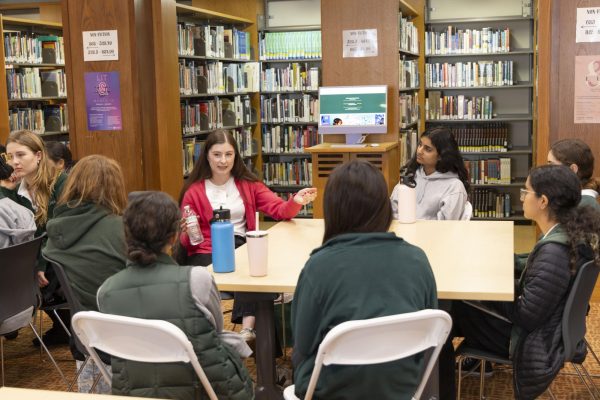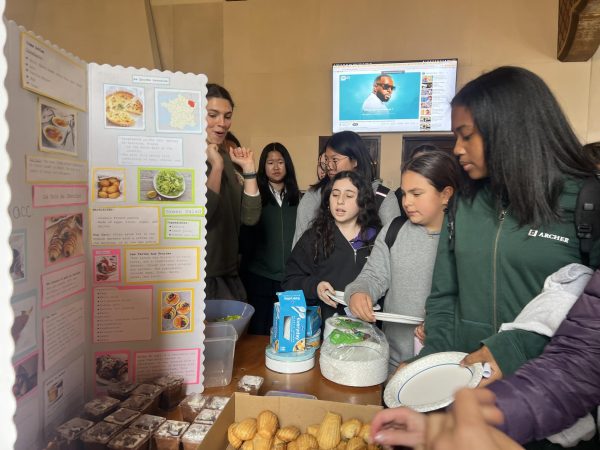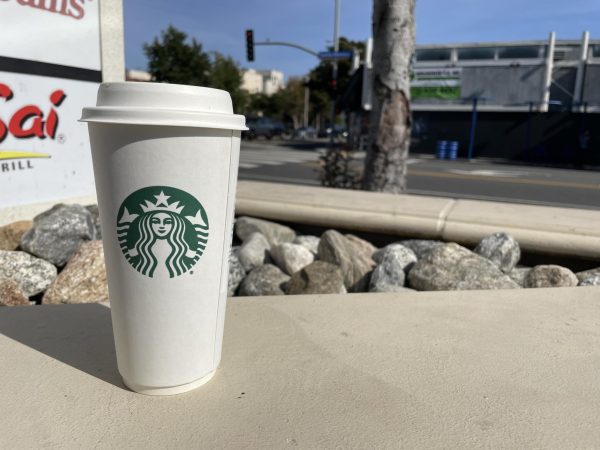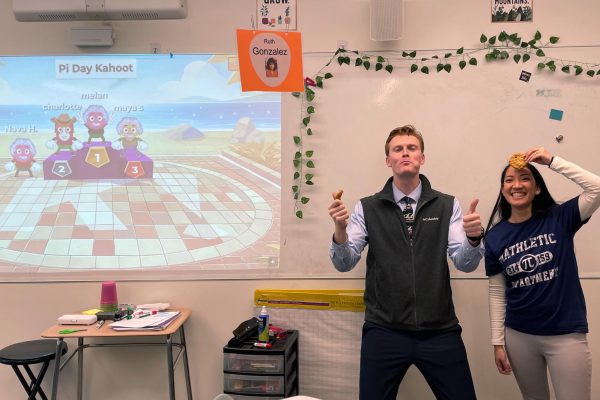Hacking teens come together to support mental health
Photo credit: Nelly Rouzroch
Isabella Peyrot ’18, Iman Mohammed ’18, Lissa Kanai ’19 and Lola Wolf ’19 pose for a picture. These were the four Archer girls to attend the Hackathon.
You’ve heard about running marathons. But what about a Hackathon?
Twenty-five teens from various high schools in Los Angeles came together on March 18 at Crossroads School, where they spent 11 hours learning about coding and hacking in order to bring awareness to teen health.
“It was really fun,” junior Iman Mohammed said.
“I learned so much and realized how much I could accomplish [coding] in such a short amount of time,” Isabella Peyrot ’18 said.
The Hackathon focused on three areas in particular:
- Wellness, sleep, focus, ADD/ADHD
- Nutrition as preventative Care
- Environmental contaminants that affect teen health (air and waste)

The high school students had to pitch their ideas about how they wanted to combat an area of mental health and form teams with other students who found their ideas interesting. At the end of the day, they needed to have a video, prototype, presentation and a hack all prepared.
Solutions proposed included a barcode scanning system to gauge the sustainability of produce, a discreet keychain that would notify local authorities when the owner was in a dangerous situation and an app that helped users track their mood and mental health.
“What they produced was incredible. I was blown out of the water. I don’t feel like I had low expectations, but I was really impressed with what they did in the amount of time provided,” Jolina Clement, Director of Educational Technology and an organizer of the event, said.
“Seeing the students at the end be so proud of what they created–they are so excited to share it and tell the adults and each other about it–that, to me, was a marker of success,” Erin Harris, another event organizer and Archer computer science teacher, added.
Clement and Harris both expressed excitement that the event allowed students to synthesize many aspects of STEM.
“I think that [students] walked away with this really great experience of peer collaboration and engineering and design,” Clement said.
Harris shared her perspective that teens’ unique experiences enabled them to innovate creatively.
“You’re having teens create these solutions, and who know better about [teen] health than the teens themselves?” Harris said.
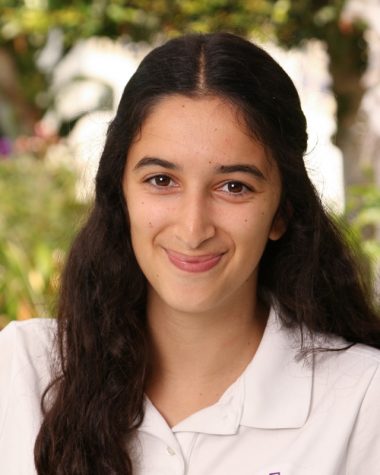
Nelly Rouzroch joined the Oracle Staff during the 2015 year and became the new Multimedia Editor in 2016. She attended Ignite Journalism University in...
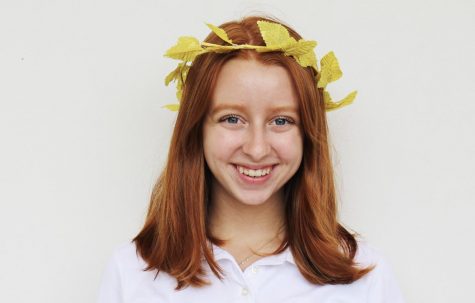
Anna Brodsky joined the Oracle staff in 2016. She took a hiatus for the 2017-2018 school year to fulfill her art credit by serving as copy editor for the...




